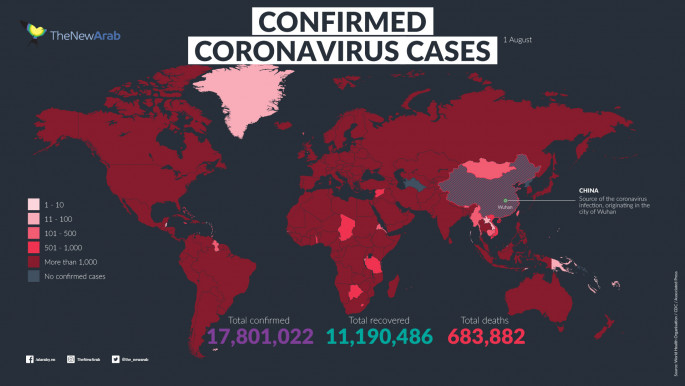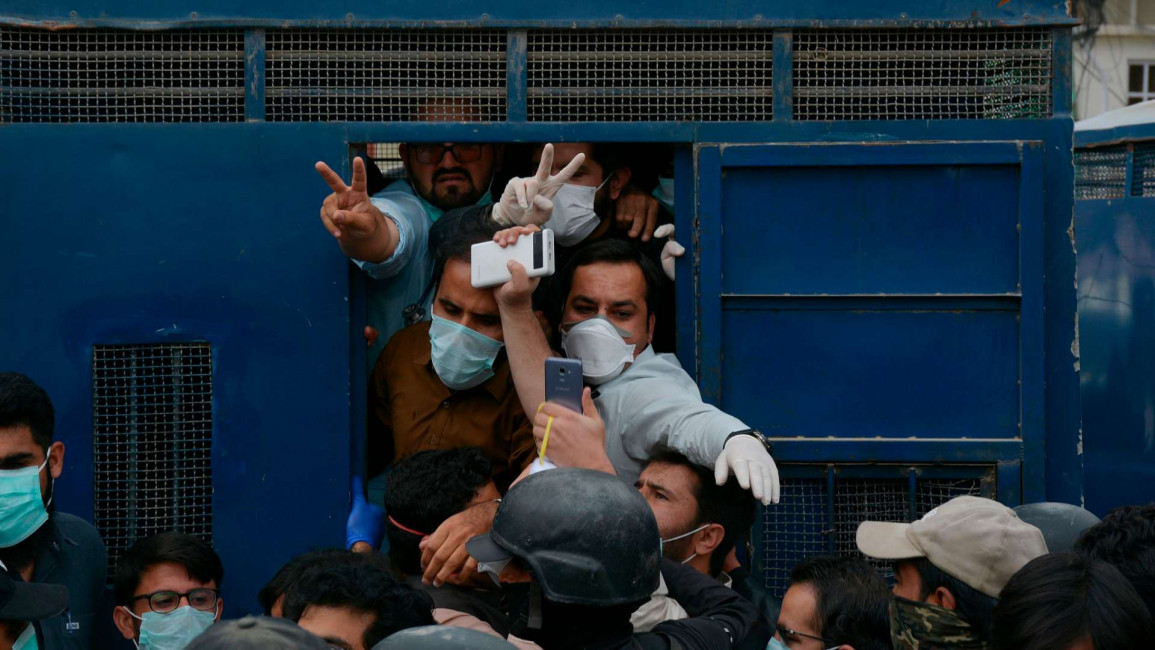Pakistan doctors jailed after demanding protective equipment as coronavirus outbreak spreads to jail
The 47 doctors were detained after hundreds of doctors and paramedics took to the streets in Quetta, the capital of southwestern Balochistan province, on Monday. They were released later the same day, according to provincial spokesman Liaquat Shahwani.
An army statement on Tuesday promised that "emergency supplies of medical equipment, including PPE [Personal Protective Equipment] are being dispatched to Quetta".
However, some of the doctors said they were maltreated by the police and that some of their colleagues were beaten. The physicians declined to give their names, fearing reprisals.
Doctors in two Quetta hospitals said they were going on strike on Tuesday in response to the lack of PPE.
"We are on strike for the protection of our doctors and paramedics," one of the detained doctors, Hanif Luni, told Reuters.
Doctors will stay on duty in the cardiac and gynaecology departments for emergencies, Luni said.
He added that the strike had spread to other areas of Balochistan.
Two doctors have died after contracting the new coronavirus in Pakistan, which has recorded 4,004 cases and 54 deaths.
Many of the cases have been traced to pilgrims returning from neighboring Iran. Pakistani authorities have imposed a countrywide lockdown until April 14.
Read more: Middle East regimes are freeing inmates as coronavirus spreads. But political prisoners remain behind bars
Dozens of prisoners in a Pakistani jail have contracted the Covid-19 illness, officials have said.
At least 49 inmates at a jail in the eastern city of Lahore have tested positive, according to a tweet by the provincial chief minister late on Monday.
 |
| [Click to enlarge] |
More than 150 additional inmates have been identified as potentially infected with the virus.
"Health department officials are coming every day to monitor the situation and the conditions of the patients," Amir Rauf Khawaja, a public relations officer for the Lahore jail authority, told AFP on Tuesday.
Khawaja said the test results for an additional 154 prisoners were still pending and authorities had set up a quarantine area inside the facility for inmates that had tested positive for the coronavirus.
Pakistani prisons and jails are frequently beset by shoddy health and hygiene conditions along with overcrowding making the facilities a potential flashpoint for the highly contagious coronavirus.
According to a 2019 government report, there are more than 70,000 people currently incarcerated in 114 different facilities across Pakistan, many of which are stretched beyond their intended capacity.
Ali Haider Habib from the advocacy group Justice Project Pakistan called the outbreak a cause for "great alarm", saying "drastic measures" including releasing vulnerable prisoners needed to be taken immediately.
The Supreme Court is set to review a petition filed by the country's attorney general calling for the early release of thousands of prisoners in the light of the Covid-19 pandemic.
Other countries have faced calls for large-scale prisoner release programmes due to the pandemic, with Iran temporarily releasing tens of thousands last month.
While a number of Middle Eastern countries have temporarily released prisoners, countless political detainees remain behind bars, prompting condemnation from human rights organisations.
Follow us on Facebook, Twitter and Instagram to stay connected



